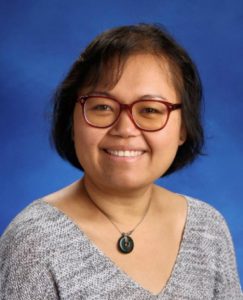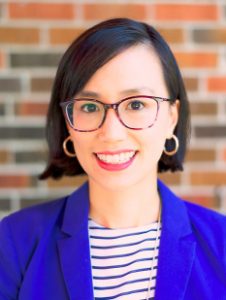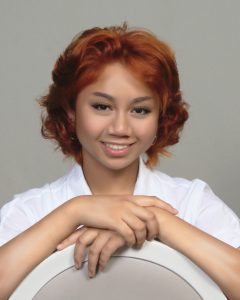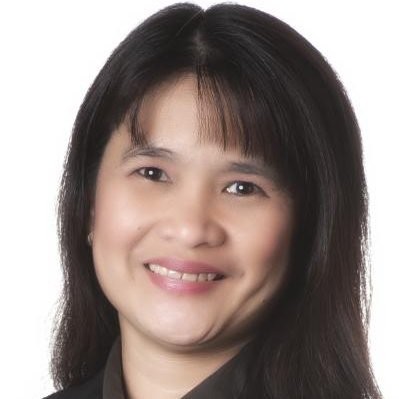PASSOC project adds more PH heritage content in Toronto school board curricula
PASSOC project adds more PH heritage content in Toronto school board curricula
 June 8, 2021
June 8, 2021
By Veronica Silva Cusi
The Philippine Reporter
A project that started in 2018 to include Philippine heritage in Toronto school curriculum is moving forward with additional content and strategies to encourage more teachers to adapt them.
The Philippine Arts and Social Science in the Ontario Curriculum (PASSOC) project started in March 2018 with three curricula for elementary — Grade 8 Geography, Grade 6 Social Studies and Grade 6-8 Dance. The initiative was initially a joint project of the Toronto Catholic District School Board (TCDSB) and York University, with some of their professors helping develop the curricula and learning materials.
Since 2019, the project has been solely led and funded by the TCDSB, said Marissa Largo, Ph.D., pioneering project coordinator until 2020. Since then, TCDSB has added two more curricula — Grade 9 English and Grade 9 Geography — which were introduced this school year 2020 – 2021.

Aileen Santiago, teacher,
new project coordinator
Aileen Santiago, teacher-representative of the Filipino Advisory Committee, and English, French, and teacher-librarian of the St. Joan of Arc and St. Anne Catholic Academy of Virtual Learning of TCDSB, is the new PASSOC project coordinator.
TCDSB is one of the biggest English school boards in Canada, with a student population of almost 89,500 in the current school year. It is estimated that in some classrooms, about 90 per cent of students are of Filipino heritage.
The Filipino Advisory Committee advises the TCDSB to be able to help students of Filipino heritage do well in school by fostering equitable education and supporting them.
Largo said the PASSOC team added more curricula because it was necessary.
“The teachers saw the need to move this [project] forward because they are accountable to the students in their classrooms. We [teachers and curriculum writers] were talking that this is the kind of curriculum we wish we had when we were going through the school system,” she added.
On picking English and Geography as the first two curricula for expansion in the high school level, Largo said that these two are required subjects that every student should take.
“So if we provide that culturally responsive option for high school students of Filipino descent, then there is this opportunity for every student in the school board to have some sort of engagement with the PASSOC project. It is also about trying to reach as many students as possible,” she added.
Santiago said that English as an interdisciplinary subject is a good starting point from where students can explore the topics in the curriculum. “There’s so much material to draw from, and it’s a natural entry point for Grade 9 students to explore the subjects,” she added.
Santiago added that while the curricula are for specific grades, “the materials can be adapted to suit students based on the teacher’s professional judgment.”
“The PASSOC project is a set of lesson plans that reflects a pedagogical approach which is called culturally responsive pedagogy. In other words, it uses instructional strategies that respond to a students’ culture,” she added.
Thus, Grade 12 student Lara Fajardo is learning more about her family heritage in her social science and humanities class, Families in Canada.

Marissa Largo, PhD, pioneering project coordinator
COVID
Despite the challenges in learning due to the pandemic, the TCDSB teachers said now more than ever, it is important to introduce the new curricula.
They said the PASSOC curricula have helped further the discussion in the classroom on recent developments, such as the focus on racialized frontline healthcare workers and caregivers, the Black Lives Matter and Stop Asian Hate movements, and Indian residential schools.
“COVID-19 is exacerbating the fact that it is affecting black and brown bodies in communities, and even more so healthcare workers and frontline workers who are overwhelmingly Filipino,” said Largo. “It [the project] is a way to highlight what is going on now in a culturally responsive and urgent manner.”
Growing up, Largo said her generation learned more about the victories of European colonialism, while Indigenous oppression and stories of successes of people of colour were either not in the forefront or absent from the curriculum.
“I see this [project] as part of a larger project of building equity into education,” she added.

Lara Fajardo, Grade 12
student
Fajardo said she was pleasantly surprised that the course includes discussions about Filipinos and Filipino families and other cultures, including current event issues.
In her fourth quadmester course, Fajardo said: “We started talking about racism and Asian hate, and we went to attend the Proudly Pinoy event … on conversation about being Filipino to us and other people.”
Proudly Pinoy is an event where achievements of Filipinos in Canada are highlighted. Filipino role models in Canada are introduced to the audience of mainly students.
Fajardo, who was born in Canada to Filipino immigrants, said that while she learned about Philippine culture from family and friends, she has grown to admire and understand about her heritage, with the help of a Filipino teacher and after having heard Filipino speakers in the course.
“This course was really good for me — and other people as well — to learn about Philippine culture in a way that celebrates it,” she said. While she said she has been living the Filipino culture, her experiencing her family heritage in school and in other occasions, such as the event, builds confidence in her about her culture and heritage.
“With this course, I feel more connected with the community and culture — to see it come to life in this course … (and) in the conference,” she added.
Implementation
Adapting the curriculum is currently dependent on the teachers. It is up to them to decide if they would like to include the modules in their teaching. That is why the PASSOC project includes orienting and training the teachers on the project and the curricula.
For example, all new teachers are introduced to the curricula through the province’s required New Teacher Induction Program.
But Santiago said they are also looking into other opportunities to introduce the project to superintendents and other teachers. Only last June 3, Santiago presented the project at TCDSB workshop.
Plans:
Next steps would be to add curricula, starting with Grade 10 curriculum, if funding is available.
The idea is as we get more funding, we will add more curricula, said Largo.
For the new curricula introduced this school year, Santiago said they had only five days of paid funding. The rest is labour of love from teachers and curriculum writers.
Aside from Santiago, the other curriculum writers for the high school curricula were Kristine Sol Idmilao Aquino, Audrey Ferrer and Kristina Tjon-A-San. All are TCDSB teachers.
The elementary curricula were jointly written by TCDSB teachers with York University professors:
Philip Kelly, PhD, York University professor of Geography, collaborated with Michelle Aglipay (St. Brigid) and Patt Olivieri (Curriculum Leadership & Innovation, TCDSB) on the Grade 8 Geography curriculum.
Ethel Tungohan, PhD, York University assistant professor of Political Science and Social Science, worked with TCDSB teachers Fredeliza de Jesus (St. Paul Catholic School) and Jennilee Santican (St. Maria Goretti) on the Grade 6 Social Studies curriculum.
Patrick Alcedo, PhD, York University associate professor of Dance, worked with Merle Gonsalvez (St. Ursula) and Christella Duplessis-Sutherland (St. Timothy) on the Grade 6 – 8 dance curriculum.
——————————
 Veronica Silva Cusi is a multimedia journalist and researcher with more than two decades of experience. She was a business journalist for 12 years with Business World in the Philippines and a journalism lecturer for 14 years at University of the Philippines. She’s been covering ethnic media in the GTA for more than a decade and also worked as editor and reporter in Singapore. She holds two master’s degrees — Communication Research and Journalism. You can follow her on Twitter @VSilvaCusi.
Veronica Silva Cusi is a multimedia journalist and researcher with more than two decades of experience. She was a business journalist for 12 years with Business World in the Philippines and a journalism lecturer for 14 years at University of the Philippines. She’s been covering ethnic media in the GTA for more than a decade and also worked as editor and reporter in Singapore. She holds two master’s degrees — Communication Research and Journalism. You can follow her on Twitter @VSilvaCusi.
Comments (0)